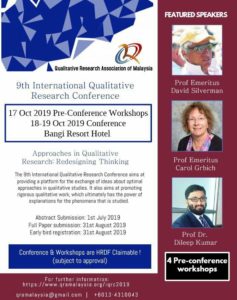Factual composition is one of the trickiest essays that I have to teach during Latihan Ikhtisas. Why? It is based on facts and thus, we cannot add hypothetical information or assumption. But how to know more about facts around us? It is through reading. If you don’t read, there will be little chance for you to encounter the latest facts or findings. Like the smallest planet is not Pluto. When I learned about solar system and planets, Pluto was considered as the farthest planet from the sun (the 9th planet in fact). But, this fact is changed. Now, Pluto is no longer considered as one of the planets even, but rather known as Dwarf planet (a planetary mass-object that is neither a true planet nor a natural satellite). So, teaching factual composition demands me to give the students lots of reading materials about nature and whatsnot. The most common places to find such things are from magazines like National Geographic or Discovery. I asked around from my colleagues in UTM. Some of them wanted to “dispose” it from their offices so I use this opportunity to ask for donation (give me the magazines FOC). Armed with that magazines, I asked the students to read one or two articles before giving them homework on factual composition.
FACTUAL COMPOSITION
Tips and techniques
- You have to inform and present facts and ideas in factual compositions. You may have to explain something to the reader.
- You cannot get the facts wrong in factual compositions.
- Each paragraph must have a distinct topic and all other sentences must factually relate directly to it. The link words or phrases are important as they help the reader follow the flow of ideas
What can you do to save the environment? Write your composition not less than 350 words.
The world around us is in danger. The earth faces problems of global warming and massive pollution. Our rainforests are disappearing. Animals in the rainforests and seas are in danger of extinction. So are our natural resources. How can one person save the environment?
There are many things that we as individuals can do to stop the destruction of the environment. We should take green steps, that is, change our habits and lifestyles to stop polluting and harming the world around us. After some contemplation, I know what I can do to contribute towards saving our environment. I will practice the 3Rs – reduce, recycle and reuse – and the 3Rs will be my dictum in life. I will not be part of the use-and-throw society.
First, I can reduce consumption of paper by using handkerchiefs. This will definitely save many trees. Every kilogram of paper I do not use can save 2.5 kg of greenhouse gases. I will also say ‘No’ to plastic bags. Plastic is not biodegradable. How many times have we read from the newspapers of fish and turtles being choked to death because of plastic bags? I will instead carry a cloth bag with me to carry all my shopping.
As a result, there will be less littering and pollution. Moreover, I will add to my ‘No’ list of disposables, especially styrofoam and polystyrene. For takeaways, I will bring my own Tiffin or containers. This will definitely reduce the amount of rubbish I throw away. Of course, it can be quite inconvenient but ‘little drops of water make the mighty ocean’.
Another example of what I can do is to reuse. I will use paper on both sides, reuse any paper and cards. I will creatively reuse wrapping paper, ribbons, birthday cards or empty boxes. Every ton of paper I reuse will save seventeen trees. I can also do a compost from my kitchen and garden. Any leftover food and garden trimmings can form insulation and enrich the soil. Old toothbrushes can be used for cleaning shoes or walls. To do this alone is difficult, so I will get help of my siblings and the rest of the family.
Instead of individual effort, it becomes a family or class effort. It is more effective this way. For example, if I can convince my fellow friends to separate paper, plastic, metal and glass for recycling, it will really help to reduce the emission of methane. Still another example is computer recycling. As we change our computers and other related electronic products quite quickly, we should send them to recycling companies that specialize in such work. Just throwing them away will cause a major problem of disposal.
There seems a lot to be done. However, if we can do it together, we can make a lot of differences in saving our environment. [472 words]







